12 STRONG (2018)
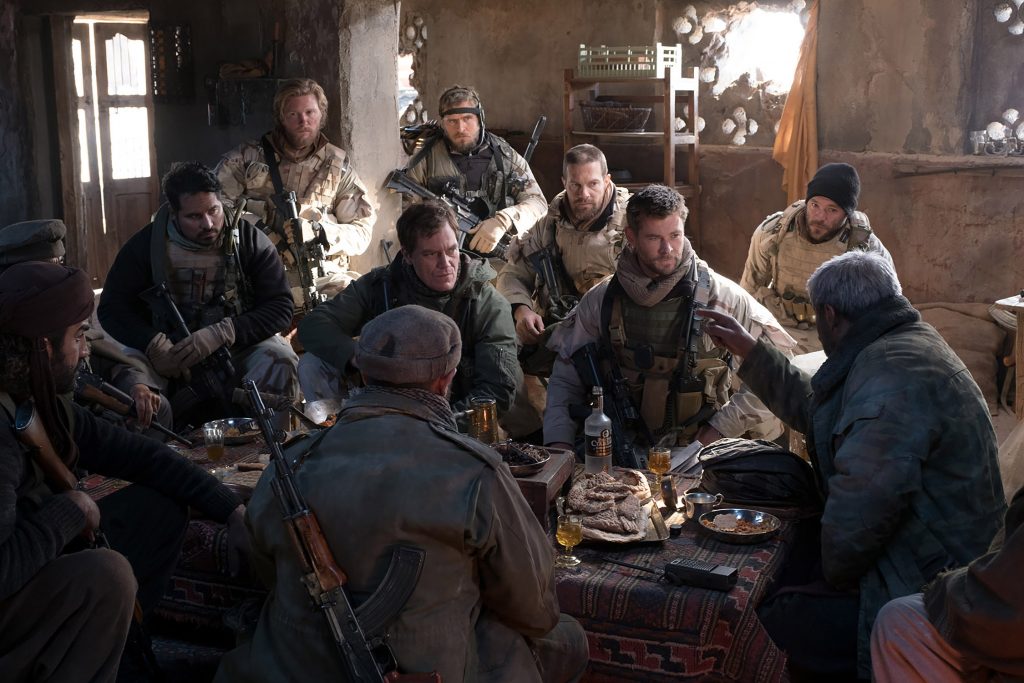
GOING IN
12 Strong is a film based on Doug Stanton’s non-fiction book Horse Soldiers, that dramatizes the true story of a U.S. Special Forces team who deployed to Afghanistan in the wake of the attacks on September 11, 2001. They were some of the first American military to engage in unconventional warfare against the Taliban and al-Qaida forces. As the title of the book and all of the film’s marketing shows, this group in particular used horses as part of their fight against enemy forces. Chris Hemsworth leads an interesting casts that includes Michael Shannon (who I don’t see as a special forces soldier), Taylor Sheridan (in his first acting gig since becoming a hot new writer/director), Trevante Rhodes (coming off an incredible performance in Moonlight), Michael Peña (most likely for some comedic levity), William Fichtner, and more. The film is directed by Nicolai Fuglsig, a former war photojournalist making his directorial debut, which means it should at least look good. I also expect the film to be rousing and patriotic, and as someone who was serving in the military and stationed in the Middle East at the time of the attacks, it will probably be quite affecting regardless of quality.
2 Hours and 10 Minutes Later.
COMING OUT
9/11 is one of those days that most everyone can remember in vivid detail. Each year on Patriot Day, it is common to hear the question “Where were you when…?” whispered around the office as co-workers somberly reflect on the tragedy of the World Trade Center attacks and share their stories, additionally observing a moment of silence at 8:46 am. It is nearly impossible to not feel those emotions of grief and sadness again, as we collectively remember those who lost their lives because of hate. And so, early in 12 Strong when footage of the crashes is shown, I’ll freely admit to immediately becoming emotionally invested. Then we are introduced to some of the soldiers that make up the team at the center of this story, and we watch as they struggle with feelings of anger and rage. They want payback, and they want it now. They know that it means leaving their loved ones, but these are men of ideals and they must fight. Again, emotion washed over me as I remembered my time in the Middle East, learning of the attacks and then sitting in my off-base apartment armed and watchful as demonstrations took place at a local mosque across the street. I, too, wanted payback. 12 Strong begins by presenting us with this background and bringing us back to that moment that we realized safety on our own soil was no longer a guarantee. It is a powerful and evocative opening act.
At the heart of 12 Strong, as with most good war films, is brotherhood. Captain Mitch Nelson (Chris Hemsworth) leads a Special Forces team that includes many men older and with more combat experience than himself. He is fiery and determined, though, and his natural leadership has them gladly follow him into a dangerous mission as the United States seeks to work with a local Afghan warlord to take a key city back from Taliban. The one thing that will quickly sink any war film for me is an inaccurate portrayal of military life. Thankfully, the team is shown in way that is very reminiscent of my own experience, effectively capturing the camaraderie that exists between these men who must rely on each other for their very lives. Also accurately shown is the way in which Chief Warrant Officer Hal Spencer (Michael Shannon), the grizzled vet, supports and provides advice for Nelson, understanding the role in leadership that he has and helping the young officer to make wise choices. The relationship between the entire team is a joy to see, but there is a special bond between Nelson and Spencer – a strong mutual respect. At one moment as the men are about to embark on their mission, Spencer muses “It’s a hell of a thing we do. How do you love your family and leave them to go to war?” Honor, of course is partially the answer, but brotherhood sure makes it easier.
Once in the mountains of Afghanistan, Nelson and the team meet up with General Dostum (Navid Negahban) who serves as a guide and provides his army to help the Americans regain control of the city for them. Negahban’s performance is wonderful and was the surprise of the film, outshining the solid work by Hemsworth, Shannon, Peña, and others. Dostum and Nelson must learn to work together in what starts out as a tenuous relationship but ultimately provides a great example of what it means to grow to trust one another. What 12 Strong does differently than so many films set in this era is use this relationship to remind us of the Aghani people who were victims of al-Quaida and the Taliban themselves. General Dotsum is a truly great man who led his people in opposition of the Taliban and went on to become Vice President of the country in 2014. Here we see why, as he mentors Captain Nelson, teaching him the difference between a soldier and a warrior, and forming a bond that has grown into a lifelong friendship between the two men. This relationship as depicted in the film was probably my favorite aspect, and amidst the chaos of war it provided some dramatic character depth and an arc of growth for Captain Nelson.
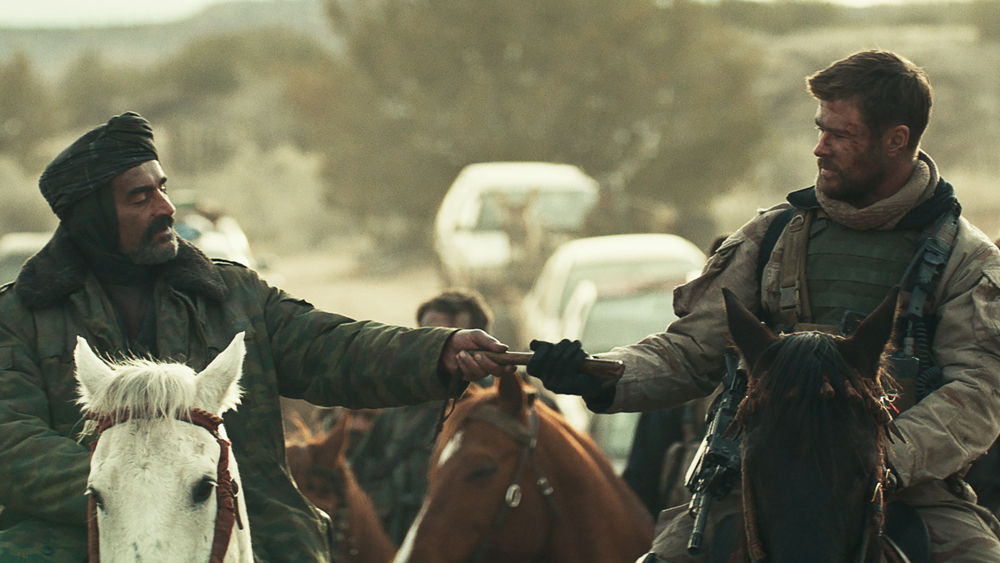
The one thing that I dislike most about 12 Strong is the choice to include a villain. Around the beginning of the second act we are introduced to the Taliban leader who has taken control of the city and are shown examples of the horrific way in which his group operates. I did not feel this was necessary because we have enough real-life motivation to root for our heroes already. His addition was a distraction somewhat during the action and removing him might have trimmed off 10 minutes or so and made the film feel a little tighter. His inclusion doesn’t sink the film by any means, he just felt a little out of place.
Technically, the film has many strong qualities, chief among them the sound design. Gunfire and explosions sound crisp, real, and terrifyingly close. Cinematography is also very good, which is not surprising given the director’s photographic background. The film is full of beautifully framed shots, the likes of which you would see in a magazine from a wartime photojournalist like Fuglsig, but there is also an inconsistency to this that shows his lack of directing experience. Mostly the film looks and sounds great, with a near non-stop pounding score escalating our heartbeats in rhythm with the tension and action playing out on screen. It’s also a relief to see that the horses are not used as a gimmick at all, but their place in the story feels genuine and realistic (with the exception of one slightly unbelievable, but awesome, action scene).
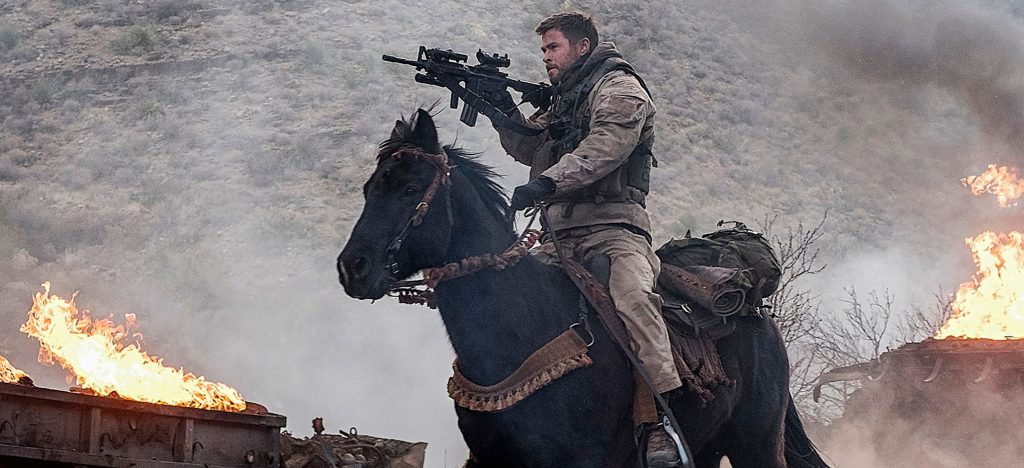
VERDICT
12 Strong is a tight, tense thriller that retells an incredible story in American war history. It focuses as much on the diplomacy needed between the U.S. and Afghanistan as it does the incredible battles with Taliban fighters to show a well-rounded picture of how the two nations worked together to accomplish their mutual goal. This is not a propaganda film, but it does evoke powerful emotions related to memories of a terrible tragedy, and especially so for those who left their own loved ones to take up the fight themselves. Anchored by strong acting performances across the ensemble cast and without relying on manipulative fake motivational speeches, 12 Strong shows how loyalty works in a military brotherhood, and how powerful it can be. Many elements of the film may feel somewhat generic, but the emotional resonance can’t be ignored, and make this one definitely worth seeing.
Rating:
 Aaron White is a Seattle-based film critic and co-creator/co-host of the Feelin’ Film Podcast. He is also a member of the Seattle Film Critics Society. He writes reviews with a focus on how his expectations influenced his experience. Follow him on Facebook and Twitter to be notified when new content is posted.
Aaron White is a Seattle-based film critic and co-creator/co-host of the Feelin’ Film Podcast. He is also a member of the Seattle Film Critics Society. He writes reviews with a focus on how his expectations influenced his experience. Follow him on Facebook and Twitter to be notified when new content is posted.

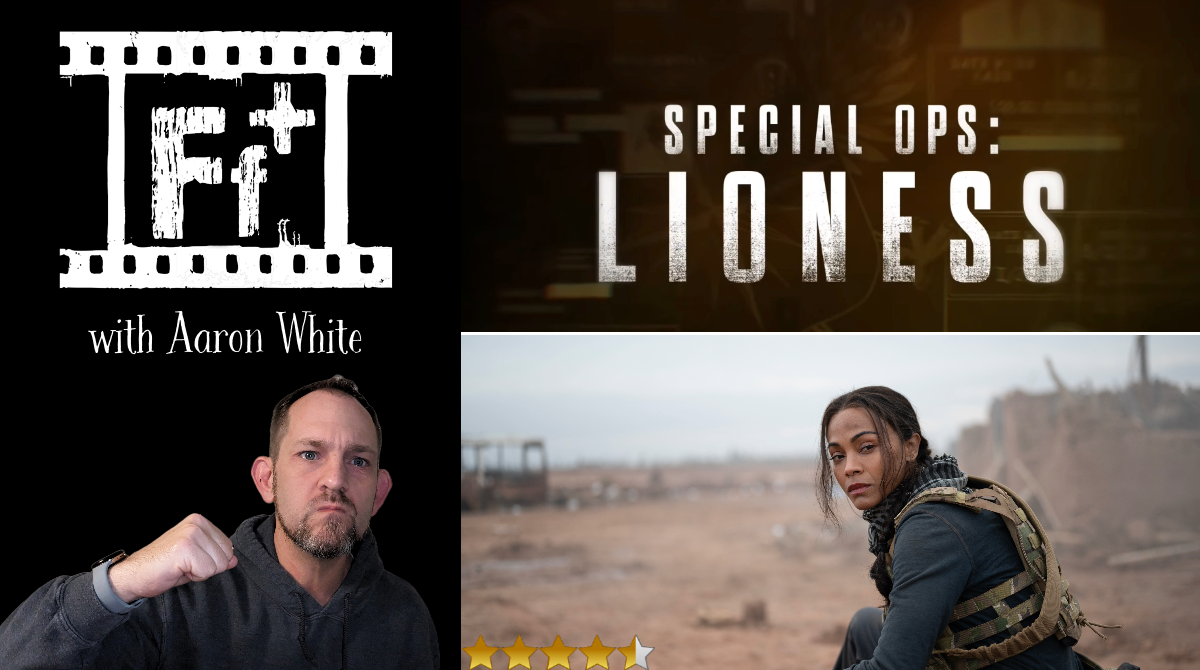
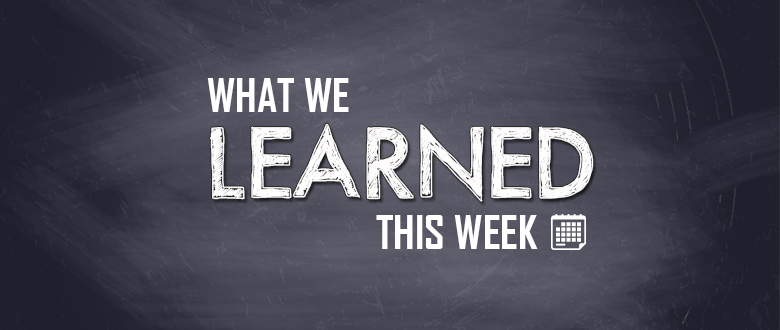
 DON SHANAHAN
DON SHANAHAN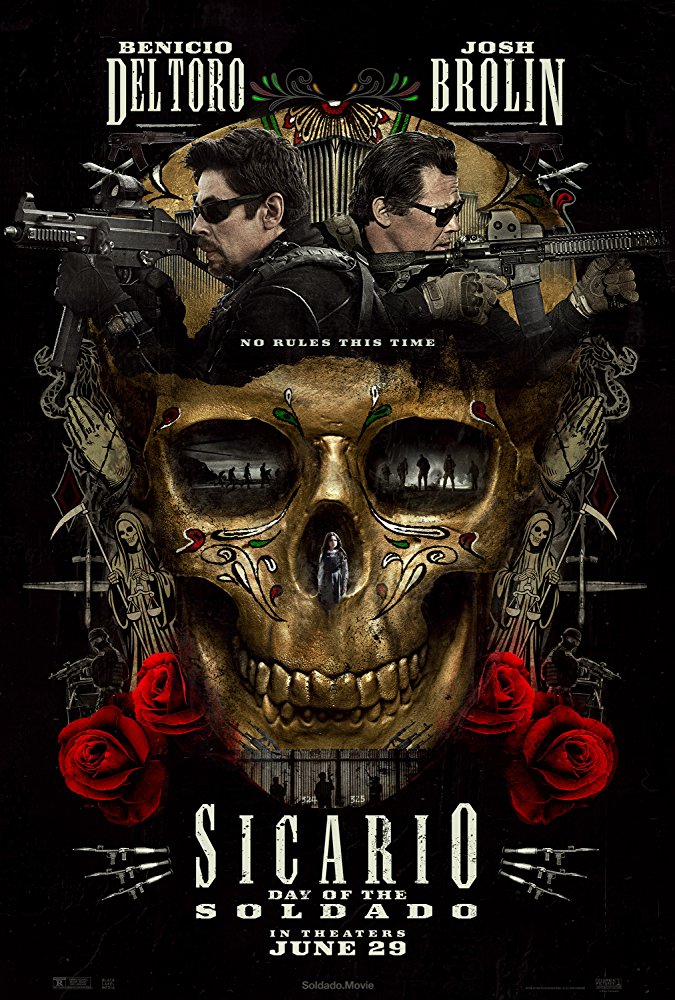
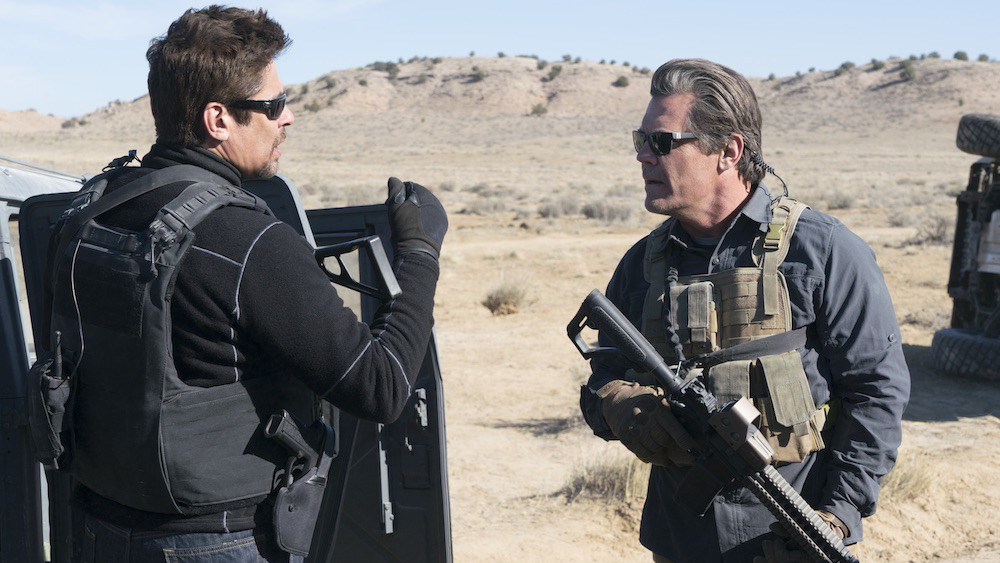

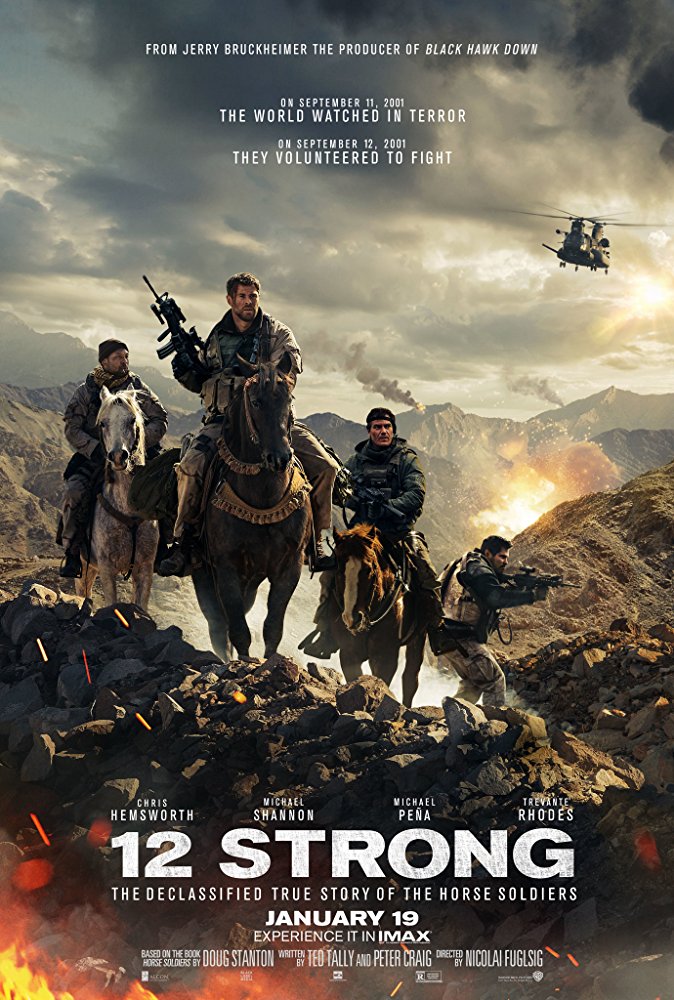



 Aaron White is a Seattle-based film critic and co-creator/co-host of the Feelin’ Film Podcast. He is also a member of the
Aaron White is a Seattle-based film critic and co-creator/co-host of the Feelin’ Film Podcast. He is also a member of the 
 DON SHANAHAN is a Chicago-based film critic writing on his website
DON SHANAHAN is a Chicago-based film critic writing on his website